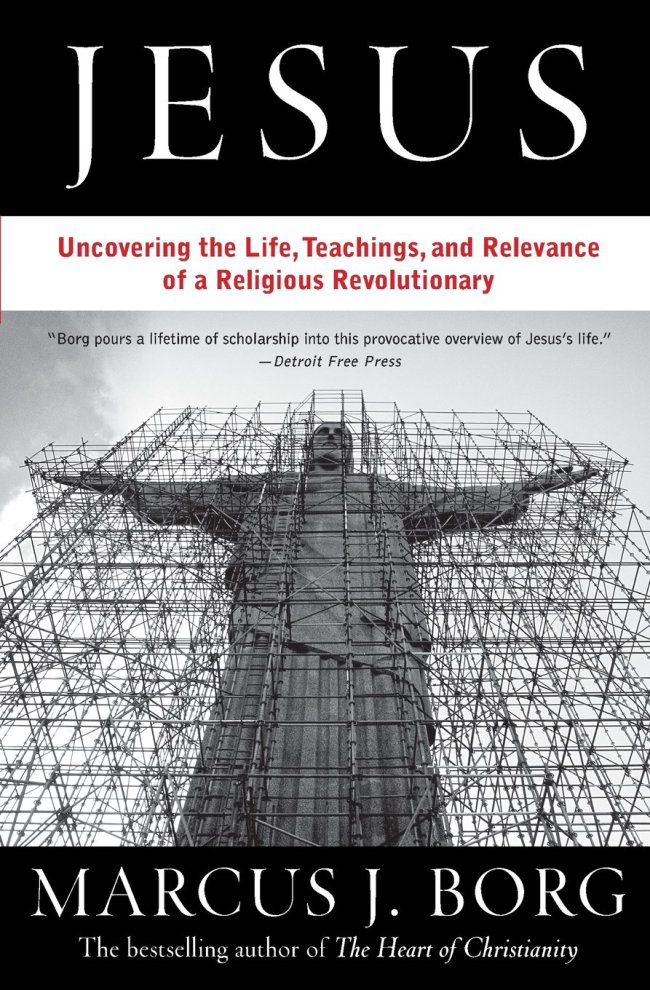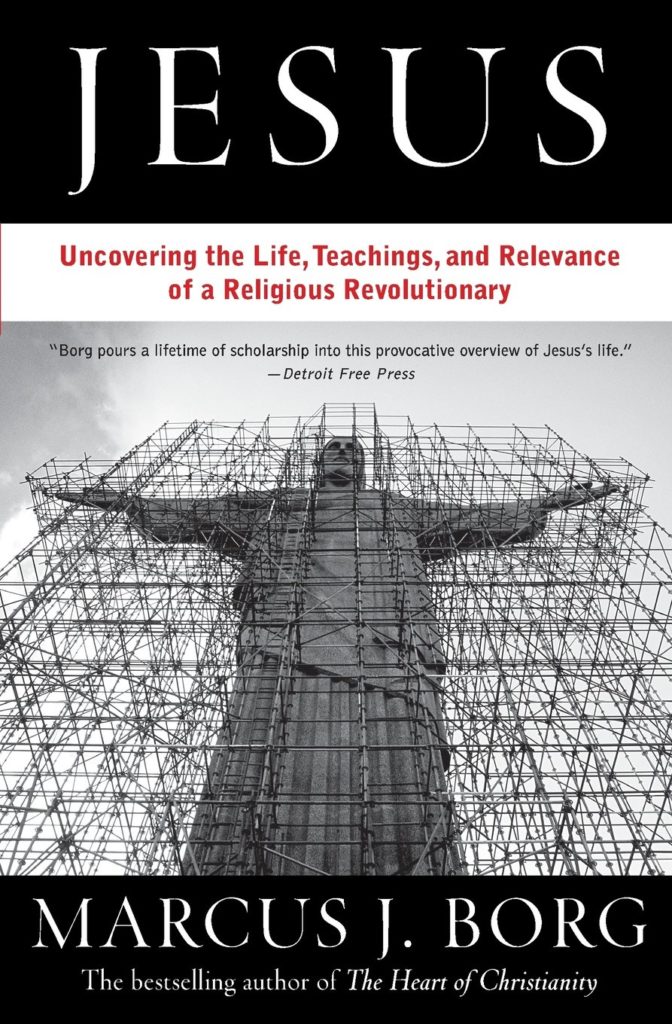Jesus: Uncovering the Life, Teachings, and Relevance of a Religious Revolutionary


Fully revised and updated, this is Borg’s major book on the historial Jesus. He shows how the Gospel portraits of Jesus, historically seen, make sense. Borg takes into account all the recent developments in historical Jesus scholarship, as well as new theories on who Jesus was and how the Gospels reflect that.
The original version of this book was published well before popular fascination with the historical Jesus. Now this new version takes advantage of all the research that has gone on since the 80s. The revisions establish it as Borg’s big but popular book on Jesus.
A Review by G. Richard Wheatcroft
For almost twenty years Marcus Borg has shared his scholarship, profound spirituality and insight about the historical Jesus in five books. They are, Conflict, Holiness and Politics in the Teachings of Jesus (1984, 1998), Jesus: A New Vision (1987), Meeting Jesus Again for the First Time (1994), The Meaning of Jesus: Two Visions, co-authored with N.T. Wright (2000) and The Last Week, co-authored with John Dominic Crossan. (2006) He writes that although he affirms most of what he wrote in Jesus: A New Vision, his understanding of Jesus and his way of teaching “have developed over the past twenty years.” This new book is his magisterial work on Jesus.
The focus of this book is to tell the story of Jesus that is “persuasive, compelling, inviting – and challenging” so that we can see his relevance today as the person in whom we see God’s character and passion.
The author is deeply concerned about the disagreements concerning the story of Jesus among Christians today. He describes several different, dominant versions of the story. They are the dying savior, the divine human being, the apocalyptist and the teacher. Then a larger division is evident when the story of Jesus is told from two paradigms which “conflict sharply with each other, producing very different understandings of Jesus.” An “earlier” paradigm sees Jesus trough “a Christian doctrinal lens.” It also emphasizes a “literal-factual” interpretation of the Bible, sees Jesus as “linked to the afterlife,” and emphasizes believing. But the author sees an emerging paradigm in which the stories of Jesus are understood as “human historical products that are to be read as a combination of historical memory and metaphorical narrative.” This leads him to his distinction between the “pre-Easter Jesus, Jesus before his death and the post-Easter Jesus, what Jesus became after his death.” He stresses the paradigm we use to tell the story of Jesus is crucial because it determines how we see God and the Christian life.
With the emerging paradigm as the lens for seeing the story of Jesus, Borg offers chapters on the religious, political, economic and cultural forces which shaped Jesus and his experience of God. The center of the book is a chapter titled The Big Picture, The Synoptic Profile of Jesus. Jesus is seen as a Jewish mystic who was a healer and exorcist, a wisdom teacher, a prophet and a movement initiator. The mission and message of Jesus was sharing his vision of the Kingdom of God which was shaped by the character of God as compassion and the passion of God as justice. The heart of the book is the exploration of the author’s twofold affirmation that the message of the Bible is personal and political. He writes, “The Bible is personal. It is about our relationship to God as persons.” This relationship leads to the path of personal transformation from a life centered in the self to a life centered in God. The Bible is also political. He writes, “It is about God’s passion for a different kind of world – one in which people have enough, not as a result of charity but as the fruit of justice, and in which nations do not war against one another anymore.”
The climax of the book focuses on the message and activity of Jesus challenging the domination system of his day with his message of the Kingdom of God, “God’s dream, God’s passion, God’s will, God’s promise, God’s intention for the earth, …the way the world would be if God were king, and the kings and domination systems of the world were not.” It was this message and activity that led to the execution of Jesus by Rome. The author interprets the meaning of Easter as the vindication by God of the life of Jesus and the continuing experience of him by his followers.
In concluding his book, Marcus Borg stresses that how we see Jesus “affects how we see Christianity” and “shapes what we think the Christian life is all about.” He describes the Christian life as” deeply centered in God”, which leads to experiencing personal transformation into the likeness of Christ, and participating in God’s passion for the Kingdom of God. It is a way of being Christian “in which beliefs are secondary to following the “way” a “life of deep commitment and gentle certitude.”
He writes that “being Christian is not complicated. At its center is Jesus, whose passion was God, the way and the kingdom.”
Although one may be familiar with the work of Marcus Borg on Jesus, if you read this book you will find yourself engaged in a conversation about Jesus which will open new perspectives and fuel your passion for “God, the way and the Kingdom.”
